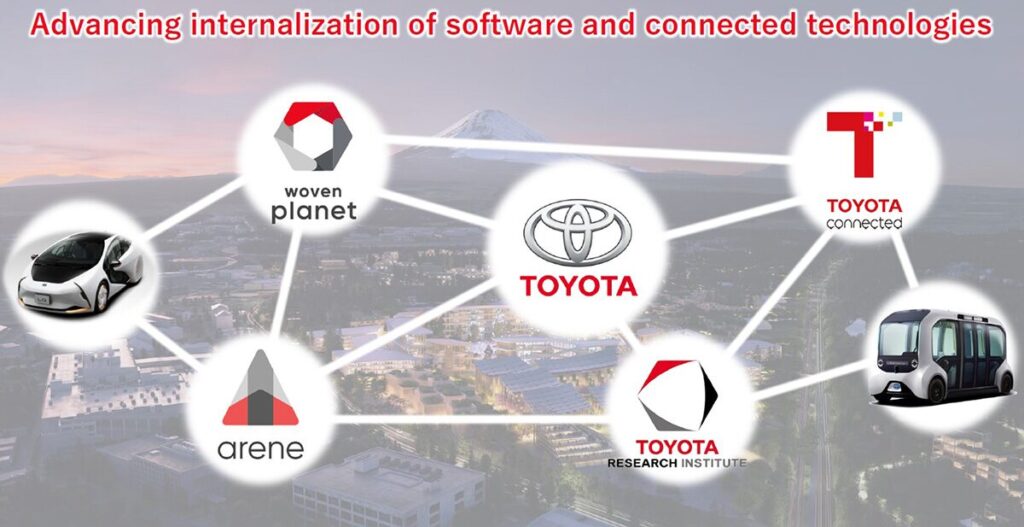Driving Innovation and Excellence in the Automotive Industry
Toyota Motor Corporation, founded in 1937 by Kiichiro Toyoda, stands as one of the world’s leading automobile manufacturers. Toyota, well-known for its dedication to sustainability, innovation, and quality, has made a lasting impression on the car industry. In this comprehensive article, we delve into the rich history, remarkable progress, and enduring legacy of Toyota.

Origins and Early History:
Toyota’s roots can be traced back to the Toyoda Automatic Loom Works. But a textile machinery business founded by Sakichi Toyoda in the early 20th century. Inspired by the principles of automation and efficiency, Sakichi’s son, Kiichiro Toyoda. Sought to apply these principles to the automotive industry.

In 1933, Kiichiro established the Automotive Division of Toyota Automatic Loom Works. But laying the foundation for what would eventually become Toyota Motor Corporation. Four years later, in 1937, the company was officially incorporated as Toyota Motor Corporation, with Kiichiro at the helm.
The Birth of Toyota’s Philosophy:
Central to Toyota’s success is its philosophy of “The Toyota Way,” which emphasizes continuous improvement. But respect for people, and lean manufacturing principles. At the heart of this philosophy is the concept of “Kaizen,” or continuous improvement. Which encourages employees at all levels to seek innovative solutions and strive for excellence in everything they do.

In the aftermath of World War II, Toyota faced numerous challenges, including limited resources and a devastated economy. However, through perseverance and ingenuity, the company emerged stronger than ever. But pioneering the adoption of lean manufacturing techniques that would revolutionize the automotive industry.
Toyota’s breakthrough came in the 1950s with the introduction of the Production System (TPS). But a groundbreaking approach to manufacturing characterized by just-in-time production, waste reduction, and employee empowerment. But TPS became the cornerstone of Toyota’s operations, enabling the company to achieve unprecedented levels of efficiency, quality, and profitability.
Expansion and Globalization:
Throughout the latter half of the 20th century. But This company experienced rapid expansion and globalization, propelled by its reputation for reliability, fuel efficiency, and innovation. In 1957, It made its debut in the United States with the establishment of Motor Sales, U.S.A., Inc. laying the groundwork for its ascent to the pinnacle of the American automotive market.

Over the decades that followed. This brand expanded its global footprint, establishing manufacturing plants, research and development centers, and sales networks in key markets around the world. But Today, This company operates in over 170 countries and regions. With a diverse portfolio of vehicles catering to a wide range of consumer preferences and needs.
Innovation and Technological Leadership:
Company commitment to innovation and technological leadership has been a driving force behind its success. From pioneering hybrid technology with the launch of the Prius in 1997 to investing in autonomous driving technology and hydrogen fuel cell vehicles. But company has consistently pushed the boundaries of automotive engineering.

In recent years, Toyota has made significant strides in the development of electrified vehicles, including hybrid, plug-in hybrid, and hydrogen fuel cell vehicles. As part of its vision for a sustainable future. The company’s commitment to environmental stewardship is evident in its ambitious goals to achieve carbon neutrality by 2050 and reduce carbon emissions across its operations.
Toyota Safety and Quality:
Safety and quality have always been top priorities for company, reflecting its commitment to customer satisfaction and public trust. I has been at the forefront of automotive safety innovation. But introducing advanced features such as anti-lock brakes, airbags, and electronic stability control systems to enhance driver and passenger safety.

In addition to its focus on vehicle safety, It is dedicated to ensuring the quality and reliability of its products through rigorous testing, inspection, and quality control measures. The company’s renowned its Production System plays a crucial role in maintaining high standards of quality and efficiency throughout the manufacturing process.
Toyota Corporate social responsibility:
As a global corporate citizen, Toyota is deeply committed to making a positive impact on society and the environment. Through initiatives such as the Toyota Environmental Challenge 2050 and Mobility Foundation. But the company seeks to address pressing challenges such as climate change, urbanization, and mobility inequality.

Toyota’s commitment to corporate social responsibility extends beyond environmental sustainability to include initiatives focused on education, community development, and disaster relief. But The company actively engages with stakeholders to identify opportunities for collaboration and partnership, leveraging its resources and expertise to drive positive change.
Toyota Results
In conclusion, Toyota’s journey from a modest textile machinery business to a global automotive powerhouse is a testament to the power of innovation, perseverance, and a commitment to excellence. But Throughout its history, This company has remained true to its core values of quality, reliability, and sustainability, earning the trust and loyalty of customers around the world.

But As it continues to innovate and adapt to the evolving needs of society, its legacy of leadership and innovation in the automotive industry will endure for generations to come. With a steadfast commitment to The brand Way and a vision for a more sustainable future, It is poised to drive positive change and shape the future of mobility for years to come.











I don’t think the title of your article matches the content lol. Just kidding, mainly because I had some doubts after reading the article.